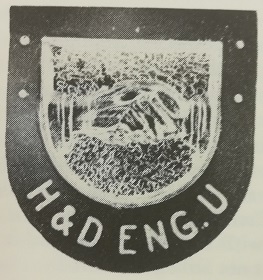The Liverpool and District Carters' and Motormen's Union (LDCMU) was a trade union representing cart drivers in the Merseyside area of England.
The National Association of Operative Plasterers (NAOP) was a trade union representing plasterers in the United Kingdom.
The Scottish Slaters, Tilers, Roofers and Cement Workers' Society was a trade union representing slaters in Scotland.
The National Amalgamated Stevedores and Dockers (NASD), sometimes referred to as the National Amalgamated Stevedores' and Dockers' Society, was a trade union in the United Kingdom.

The Amalgamated Society of Railway Servants (ASRS) was a trade union of railway workers in the United Kingdom from 1872 until 1913.

The National Union of Scottish Mineworkers (NUSW) is a trade union in Scotland, founded in 1894 as the Scottish Miners Federation. It joined the Miners' Federation of Great Britain, and in 1914 changed its name to National Union of Scottish Mineworkers. It survives as the National Union of Mineworkers.
The National Union of Blastfurnacemen, Ore Miners, Coke Workers and Kindred Trades (NUB) was a trade union in England and Wales which existed between 1888 and 1985. It represented process workers in the British iron and steel industry.
The Lancashire and Cheshire Miners' Federation (LCMF) was a trade union that operated on the Lancashire Coalfield in North West England from 1881 until it became the Lancashire area of the National Union of Mineworkers in 1945.
The Cleveland Miners' and Quarrymen's Association was a trade union representing ironstone miners in the Cleveland area of England.
The Amalgamated Textile Warehousemen's Association was a trade union representing workers in the textile industry in the United Kingdom, principally in Lancashire.
The Amalgamated Society of Steel and Iron Workers of Great Britain was a trade union representing workers in iron- and steelworks, principally in Scotland.
The General Union of Textile Workers was a trade union representing textile workers in England, most of its members being weavers in the West Riding of Yorkshire.
The National Society of Brushmakers and General Workers was a trade union in the United Kingdom.

The Heating and Domestic Engineers' Union (H&DEU) was a trade union representing a wide range of workers, particularly those involved with domestic pipework, in the United Kingdom.
The Ironfounding Workers' Association was a trade union representing foundry workers in the United Kingdom, principally in Scotland.
The United Pointsmen and Signalmen's Society was a union representing railway workers in the United Kingdom.
Charles Bassett-Vincent was a British trade unionist.
The National Amalgamated Association of Tin Plate Workers of Great Britain was a trade union representing sheet metal workers in the United Kingdom.
The United Society of Engravers was a trade union representing engravers, principally in the cotton industry, but also in the paper printing industry, in the United Kingdom.
The Ebbw Vale and Sirhowy Colliery Workmen's Association was a trade union representing coal miners in the Ebbw Vale area of South Wales.



